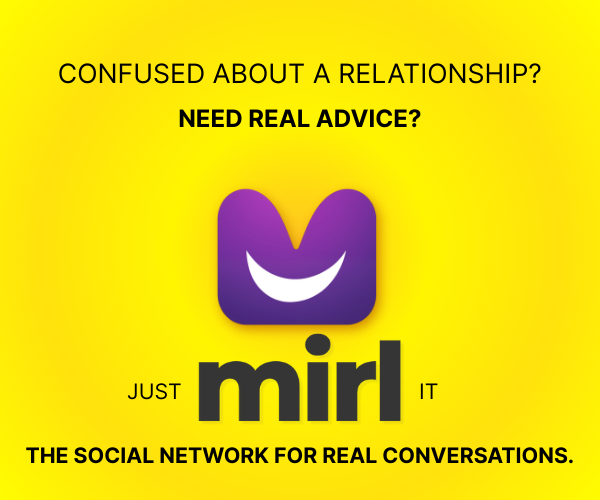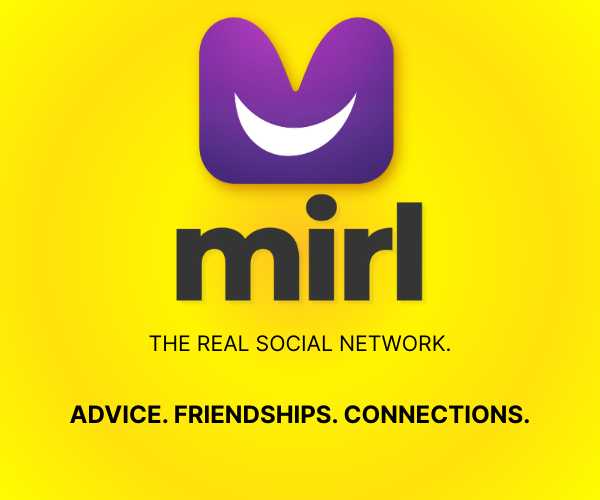Narcissistic Abuse: What It Is, Types, 58 Signs and Ways They Hurt & Break You

Do you think you’re a victim of narcissistic abuse? Or do you know someone who is? Here’s everything you need to know and what to do about it.
Although more attention has been paid to the personality disorder termed the narcissistic personality type recently, it is not a new phenomenon.
Alice Miller, a Swiss psychologist, brought the notion of narcissistic abuse as far back as the early 1980s. The first psychoanalyst to break from the pack, she proposed a theory that trauma need not come only in the form of violence or sexual abuse.
Miller believed most mental illness, cultism, addiction, and crime all resulted not just from trauma as traditionally described, but from a form of longstanding emotional abuse throughout childhood.
Many who came after Miller defined the ways a narcissistic individual perpetuates abuse on those dependent on them or in a relationship with them.
Narcissistic abuse happens not just in parent-child relationships but in many adult relationships. [Read: 23 secret signs of narcissism people overlook until it’s too late]
What is a narcissist?
Termed after a Greek mythological character, Narcissus. The story goes that he’s so smitten with himself that he falls in love with his own reflection. That is the cornerstone of a narcissistic personality.
A narcissist is someone who cares only for themselves. They are so self-absorbed that they lack the basic human trait of empathy *being able to put themselves into someone else’s shoes*.
Without empathy, you are left with a person who uses everyone in their wake as a means for their own pleasure. In fact, people in a narcissist’s world only exist for the sole purpose of pleasing themselves. [Read: 29 subtle signs to spot a narcissist and read NPD traits in a relationship]
What is narcissistic abuse?
Some people with Narcissistic Personality Disorder can get abusive to other people as a coping mechanism. But not all people who are abusive are necessarily narcissists.
If you’re wondering what narcissistic abuse looks like, here are the common behaviors of narcissists.
1. Verbal abuse
Anything that hurts a person’s mental and emotional well-being is considered verbal abuse.
This can include actions like bullying, blaming, interrupting, name-calling, criticizing, accusing, or belittling, just to name a few. [Read: Verbally abusive relationship – 31 signs, dos, don’ts & ways to get out ASAP]
2. Manipulation
Manipulation is trying to indirectly influence someone to behave in a way that would benefit the manipulator. It’s a form of covert aggression.
On the surface, their behavior and words seem harmless or even complimentary. However, underneath, you feel demeaned and sense hostile intent.
3. Gaslighting
Gaslighting is when an abusive person twists the narrative to make their victim second-guess their perception of events.
They question their actions, words, and the trust of those around them. Eventually, this makes the victim feel mentally incompetent. [Read: Gaslighting – what it is, how it works & 33 signs to spot it ASAP]
4. Emotional blackmail
When someone is blackmailed, they get threats, warnings, intimidation, or punishment if they don’t do what the narcissist wants them to do.
It’s another form of manipulation that brings out doubt in the other person. The narcissist’s goal is to make the other person feel guilt, fear, or obligation.
5. Withholding
Withholding things from another person is also a form of narcissistic abuse. It can be anything from sex, affection, communication, or money. This is done as a form of control and punishment for the other person.
It is also meant to degrade the other person by taking their power away. When the person has less power, then the narcissist usually has more.
6. Neglect
This type of narcissistic abuse usually happens in a parent-child or caregiver-child relationship, although it can happen in other types. It entails the narcissist neglecting and ignoring the need of the person for which they are responsible – such a child.
Actions of neglect can include things like child endangerment, not feeding, clothing, or taking care of other physical and emotional basic needs. [Read: Silent treatment abuse – how it’s used, and 40 signs and ways to respond to it]
7. Violence
Many times, a narcissist will become violent with other people.
This type of physical abuse can come in many forms. It can be more “minor” such as squeezing someone’s arm too hard or pulling their hair to all-out hitting and beating.
Violence can also include things like throwing and breaking things in the house. Or it could go all-out with completely destroying property.
8. Financial abuse
A lot of people might not think that money can fall under the category of financial abuse, but it can. A narcissist might control another person through economic domination or draining their finances.
They also might limit their access to any money at all, so they are at the complete mercy of the narcissist to get any money for basic needs. [Read: How to talk to your partner about money without fighting about it]
Other forms of financial abuse also include extortion, manipulation, theft, gambling, selling personal property, or accruing debt in another person’s name.
9. Isolation
A narcissist also enjoys isolating a person from others – especially when it’s their romantic partner.
They will prevent them from seeing family and friends and might even keep them locked inside the house without a form of transportation.
This can also include limiting access to outside services and support through manipulation, control, or verbal abuse. [Read: Narcissistic relationship – 36 signs, how it feels, patterns & how to end it]
Types of narcissistic abuse
Now that you know the tactics that abusers can use, there a few different types of abuse styles that you should become familiar with.
1. Abuse by proxy
Abuse by proxy is when a narcissist gets someone else to do their dirty work for them. They usually bully, harass, or threaten the victim in order to intimidate and control them. The victim might not even be aware that it’s going on.
But by using proxies, the abuser gains another layer of protection from being held accountable for their toxic behavior. It also gives them an increased sense of power over their victim.
2. Fauxpology
Another common tactic of the narcissist is called “fauxpology.”
A fauxpology is when the narcissist makes a false or insincere apology in order to placate their victim and avoid taking responsibility for their actions.
This is done on purpose and is highly calculated and manipulative. The goal is to distract their victim from any wrongdoing and make it seem like there was never a problem, to begin with. [Read: Taking someone for granted – why we do it, bad effects, and 27 ways to stop it]
3. Hoovering and love bombing
Narcissistic hoovering is when the narcissist continually tries to “suck” their victim back into the relationship after the victim had the courage to walk away from them.
Hoovering can take many different forms.
For example, the narcissist might resort to love bombing. Love bombing is when they shower their victim with love and attention after a problem or they even get broken up with. They might try excessive calls or texts, and showering them with compliments.
4. Narcissistic discard
One of the most hurtful yet common things that a narcissist does is called narcissistic discard. Then is when the narcissist suddenly cuts off all contact with their victim without any explanation.
They could completely ignore them or block them on social media. Or, they could suddenly break up with the victim for no apparent reason or warning.
This is very painful for victims because they are left with unanswered questions and confusion. [Read: How to find closure with yourself after a relationship]
Signs you are being emotionally abused by a narcissist
The worst part about being abused emotionally is how you are almost completely unaware of the abuse. [Read: 21 big signs of emotional abuse you may be overlooking]
The recipient of narcissistic abuse typically believes they are, at times, crazy, not deserving, and not worthy of love or concern. That is exactly what the narcissist feeds off. It is by making others insecure and dependent that they find their power.
How do you know if you are a victim of narcissistic abuse? These are the 16 signs you are in a narcissistic abusive relationship.
1. You have low self-esteem
Victims of narcissistic abuse typically have a very low image of themselves. That is how a narcissist gains control.
By making you feel less than others, they control and manipulate you. Before you know it, you wake up lacking the self-worth you used to have.
2. You think you are going crazy
A narcissist makes you feel like you are going crazy. When you begin to see what is going on, they convince you that it is all in your head and that they are an innocent bystander. That is why it is so hard to leave a narcissistic abusive relationship.
The continual push-pull is one of the most difficult things to overcome. They have an answer for everything or they answer nothing, to make you feel like you are going insane.
3. You become depressed or anxious
When someone treats you with disregard or to their own end, it is easy to become depressed and anxious.
Feeling unworthy, invisible, and developing self-loathing, people who are the recipient of narcissistic abuse typically exhibit depression and anxiety. [Read: Emotional roller coaster – the signs, causes & ways to end this relationship]
4. Nothing you ever do is good enough
If you feel like nothing you ever do is good enough, it isn’t. It is through constant debasement that the narcissist gains the advantage.
If they allow you to “have one,” then you gain some power. And that is something they don’t want.
Backhanded comments, continual negativity, or complete ignorance of anything you have accomplished or done well, are all signs you are a victim of narcissistic abuse.
5. Just when you are about to leave, they pull you back in
The cornerstone of narcissistic abuse is emotional manipulation.
They push you to the very limit, just before you have had enough that you want to cut them from your life, and then the charm comes out. They love you when you want to leave, but ignore you when you stay.
6. Their attitude toward you changes rapidly
When you first form a relationship with a narcissist, they make you feel like you are the best thing they have ever had. They can’t adore or compliment you more. Very charming, they win your heart.
But, once you have it, they no longer want you. If you suddenly feel like the person who used to smile at you and make you feel incredible can’t be bothered with you, that is part of the abuse and emotional manipulation.
7. They are charming when they want to be
Narcissists can be the most charming people alive. If you are in a relationship with one, you often notice they are charming to everyone but you.
Take heart, it isn’t that there is something wrong with you, or that they even care about anyone else. The way they manipulate people is through their charm.
They don’t feel the need to attract you anymore because they feel as if they already have control over you. [Read: 46 secrets to deal with a narcissist, break them & handle their petty games]
8. You feel ignored and invisible
The victims of narcissistic abuse often feel neglected, ignored, and invisible. Because they are.
By withholding attention and love, the narcissist keeps you right where they want you, dependent on them. If they pay you any attention, you may just have the strength and the self-esteem to move on. [Read: 23 raw psychological effects of being ignored by someone you love]
9. They belittle and debase you
It isn’t always outward. The narcissist is very good at throwing out covert negativism or planting seeds in your head you don’t hear or even see coming.
Masters of manipulation, they make sure to debase anything you do or put water on any spark of enthusiasm you have.
10. They attack you with rage when you question them
The narcissist doesn’t like to be challenged or to have their own self-identity put on trial. At the slightest question of their authority or their greatness, they attack with fervor.
Rage and verbal abuse are all a way they stop people from questioning how powerful and magnificent they are. One simple question leads to a tirade.
11. They refuse to take responsibility for anything
The narcissist convinces you that everything is your fault because they refuse to take responsibility for anything or any actions that they make.
Never responsible for what they do, they project it onto someone else. Typically, it is the other person in the relationship. [Read: 25 signs of covert narcissism – a special kind of mind game]
12. They use love as blackmail
If you threaten the narcissist, they use emotional blackmail to stop feeling the threat. Blackmail comes in the form of ignoring you and withholding their love.
13. They never acknowledge your success
Only by always being better than you can a narcissist feel powerful and steal your self-esteem. Always in competition with you, a victim of narcissistic abuse feels as if they’ve never accomplished anything good or succeeded in life.
That is by design. As part of the emotional manipulation, a narcissist makes sure they are always the top dog. They are also not above sabotaging things for you to make sure you never get ahead or succeed. [Read: Malignant narcissist – 48 scary traits, causes, and what makes them so bad]
14. Lying is not out of the ordinary
Narcissists lack both empathy and conscience. If caught, they easily switch their story to suit their needs. Lying is a very common form of narcissistic abuse.
Never knowing what is true, those being abused have nothing to believe in.
15. When you are out of favor with them they isolate you to gain control
The best way to control someone is to be the only one in their life that they depend on. The narcissist does all that they can to isolate their victim from friends and family members to manipulate them emotionally.
16. They may be physically abusive
Narcissists use emotional manipulation to control their victims, and they can also be physically abusive.
The worst part about being in a narcissistic abusive relationship is that by the time you know you are being abused, you have very little left to fight with. [Read: 73 red flag narcissism signs and traits of a narcissistic to read them like a book]
How do victims of narcissists feel?
As you can imagine, being a victim of narcissistic abuse does not make anyone feel good or loved. But what exactly do they feel? Here are some common things that are experienced by almost all victims.
1. They feel humiliated
A victim will constantly feel awkward and small in the presence of their abuser.
They might make inappropriate jokes or comments about the victim or their appearance in private or in front of other people to put them down. The victim feels humiliated on a regular basis. [Read: Am I in an abusive relationship? 66 early signs, effects, and ways to get out]
2. They feel like their opinion never matters
A narcissist will never consider anyone else’s opinion. You could be an expert in your field, and they still wouldn’t listen to you.
So, their victims feel like their opinions don’t matter because the narcissist “always knows best.” They shut down their victim’s input whenever they can.
3. They never have their feelings heard
Narcissists lack empathy – that’s obvious. As a result, they can almost never understand the victim’s feelings. In a healthy relationship, both partners need to be able to share their feelings and be heard.
But victims of narcissistic abuse always feel like they are walking around on eggshells every time they feel upset. They always have to keep quiet and suppress how they really feel.
4. They feel controlled
Almost all narcissists are also controlling. They always have to be in the driver’s seat and tell their victims what to do.
Victims feel like they can’t plan anything in their lives – such as seeing friends – without their partner trying to tell them they can’t do it. [Read: Controlling people – 32 traits, signs, and ways to deal with them]
5. They constantly feel guilty for no reason
Many victims of narcissistic abuse also feel guilty for what they’re being subjected to and sometimes even think that it’s their fault. Abusers are really good at manipulating their victim’s feelings.
As a result, they typically make them believe they are to blame for everything, especially when there is an argument.
The same is true for when the abuse turns physical. The abuser blames the victim for “making them lose their cool.” [Read: How to stop feeling guilty and finally start living for you]
6. They feel constant stress and anxiety
Frequent narcissistic abuse makes victims suffer from intense bouts of stress and anxiety. Because of this, it makes it difficult to function on a normal level in day-to-day life.
Victims are under constant attack from their abusers, so they are always vulnerable to negative feelings. They feel like there is a constant cloud of depression that follows them around that they can’t get away from.
7. They feel scared of their abuser
It’s not surprising that a victim would fear their abuser since they have put them through so much. The abuser constantly yells, mentally, and even physically abuses the victim.
As a result, they never feel safe around the abuser. Even when they’re not with the abuser, they are still scared of what they might face when they see them again. [Read: How to be fearless – 18 ways to set aside fear and live like a champion]
8. They feel dependent
The strangest thing about being a victim of narcissistic abuse is that they still feel dependent on their abuser. This doesn’t seem logical to most people, but it’s a common occurrence.
They somehow feel indebted to their abuser. The victim might think that they “saved” them from something in life, even if that’s completely untrue. The abuser typically tells them that they are “nothing” without them.
9. They feel very bad about themselves
Narcissistic abusers are very good at putting down their victims and completely destroying their self-confidence. The reason they do this is that it is a necessary tactic in order to maintain control.
It is not easy to control someone with high self-esteem because they will push back. But someone with low self-worth will be more compliant. Plus, this ensures that the victim likely won’t ever leave them despite the trauma the abuser inflicts on them.
Effects of narcissistic abuse
Obviously, narcissistic abuse is very devastating and has long-term consequences. Here are some of the effects on their victims.
1. Anxiety and depression
It’s not surprising that abuse victims live with constant anxiety. They never feel safe around the narcissist and fear “causing more trouble.”
And strangely, they might even have separation anxiety when they are not with their abusers. This is called Stockholm Syndrome.
All of this constant anxiety leads to depression too. They struggle to feel happy and safe in life. After being told how useless and stupid they are by the narcissistic, being manipulated and gaslighted, the depression can grow very strong. [Read: How to focus on yourself in a relationship and avoid losing yourself]
2. Post-traumatic stress disorder
Even if a victim gets out of the narcissistic abusive relationship, they will most likely still have post-traumatic stress disorder. Their brain has been conditioned to constantly look for danger, which triggers their fight or flight response.
They feel the need to be on high alert at all hours of the day because they didn’t know what their abuser would do next. This leads them to have a lot of problems trying to relax. They also stay away from certain situations and people that might remind them of the abuse.
3. Cognitive issues
Being in a narcissistic abuse relationship makes it difficult for the victim to concentrate on everyday tasks too. They might not be able to focus on schoolwork, their job, or even watching TV.
That’s because the memories of the traumatic events they experience interfere with their cognitive focus. They might even have short-term memory loss because their brain is constantly releasing stress hormones.
4. Loss of sense of self and self-worth
A victim also might completely lose any sense of self and self-worth. That’s because their abuser is constantly brainwashing them which destroys their self-esteem. They feel like they’re not even the same person they were before the abusive relationship.
It’s also common that they feel like they aren’t good enough for anyone – even for their abuser. [Read: Low self-worth – steps to see yourself in a better light]
They might even think that they did something wrong to cause narcissistic abuse. This makes them feel shame, which prevents them from reaching out for help.
5. Inability to forgive yourself
Most victims struggle with feeling unworthy or believing that they deserved the abuse. They feel like there is something wrong with them since someone who was supposed to love them used their power against them.
So, they also develop an inability to forgive themselves. They think that if they had just been a better person, then the narcissist wouldn’t have had to abuse them. [Read: How to forgive yourself and free yourself of the weight of guilt]
6. Trust issues
Being in an abusive relationship with a narcissist erodes a person’s trust levels – not only with the narcissist but with other people too. This issue can lead to other problems like social anxiety.
Because of this, they might constantly wonder whether people are telling them the truth or just trying to manipulate them just like the narcissist does. They also become over-sensitive to criticism and judgment from others.
7. People pleasing
When a person has been in an abusive relationship, they also might become a people pleaser. They feel so insecure that they want to try to make people like them by doing anything they want.
So, they become overly accommodating to get approval from other people because they are used to walking on eggshells around the narcissist. As a result, they often struggle to express their emotions and thoughts because they fear confrontation.
How can I break free from the narcissistic abuse cycle?
It is not easy to escape the narcissistic abuse cycle, but it can be done. In fact, it’s necessary to regain and preserve your mental and emotional health. So, here are some important steps you can take to leave your abusive relationship.
1. Say no and stand up for yourself
You just simply have to say no to the narcissist and stand up for yourself.
Of course, it’s not going to be easy to do, and they’re going to fight dirty and try to hurt you. Don’t let them. Be mentally prepared, and just stand your ground.
2. Don’t accept any promise and demand action
As the saying goes, “Talk is cheap.” Narcissists are really good at telling you what they’ll do in the future to change. But they almost never follow through. So, if you want the abuse to stop, then you are going to have to demand immediate change from your abuser. [Read: How to deal with a narcissist – ways to manipulate them]
3. Get help
Walking away from an abusive relationship is very difficult for most people. Because of this, you’ll need to get some support.
Friends, family, support groups, and therapists can all help you leave your abuser. They can help get you out as quickly as possible.
4. Leave – unannounced
If you confront your abuser, it will never end well. They could become full of rage and violence. But they’ll also try to suck you back into the abuse cycle.
So, that’s why you should just leave without telling them. That way, you don’t give them the chance to become violent and you won’t put your life at risk.
Make a plan with a loved one or a professional so that you can go to a safe place. [Read: How to leave a narcissist and free yourself of their web of control]
How to heal from narcissistic abuse
Unfortunately, narcissistic abuse has the potential to destroy the foundation of most people’s lives. It takes a lot of effort and time to heal from heartbreak, gaslighting, and betrayal caused by an abusive narcissist.
On top of that, the victim also might have lost touch with family members and friends along the way because the narcissist isolated them. But some steps that can be taken to heal. [Read: 46 secrets to mend a broken heart, heal, and feel happy and whole again]
1. Acknowledge and accept the abuse
It’s important that you are not in denial of what happened to you with the narcissistic abuse. So, you need to recognize and accept your feelings.
There will be a wide range of emotions such as depression, anger, anxiety, and grief. Don’t suppress them or judge yourself.
2. Set your boundaries and state them clearly
When you were in an abusive relationship, your boundaries were not being respected.
The narcissist walked all over you, so you need to learn how to have personal boundaries and enforce them with everyone in your life, with no exception.
3. Prepare for complex emotions
You will probably have emotions that you won’t even understand. For example, you might miss your abuser, which makes no logical sense.
But you have to remember that you have been greatly traumatized, so you need to acknowledge and work through every emotion you have. [Read: 18 emotions you shouldn’t feel in a healthy relationship]
4. Reclaim your identity
Most victims of abuse completely lose sight of who they are. That’s because the abuser won’t allow them to have their own identity.
Instead, they were required to do everything the abuser told them to do. So, it’s important to rediscover who you are and reclaim your identity.
5. Practice self-compassion
Don’t judge yourself for staying with the narcissistic abuser. Acknowledge that you did the best you could, but now you are going to do better in the future.
You need to learn to love and forgive yourself for staying in the relationship. Do some self-reflection and use the toxic relationship as a growth experience. [Read: Love yourself first – where people go wrong, 36 whys, and how to do this right]
6. Understand that your feelings may linger
Depending on how long you were in this abusive relationship, the feelings might linger for a long time. It’s not easy to heal from this kind of trauma and toxicity in your life.
Even if you were in the relationship for a relatively short amount of time, it could still be traumatizing. Just be patient with yourself while you work through these complex emotions that you are feeling. [Read: Self-discovery after a breakup – how to happily move on]
7. Take care of yourself
You probably never did anything good for yourself because you were so focused on pleasing your abusive partner. So, you need to rediscover what your own needs are and take care of them.
Keep in mind that you are the most important person in the world to yourself. And you need to take care of your mind, body, and soul.
8. Talk to others
If your abuser kept you isolated, you will have to reach out to family and friends and seek their support. Talk to them about what happened and ask them to help you heal.
You can also go online and find some groups so you can talk to other people who have been through similar relationships. Hearing how they healed from it will help you do it too. [Read: True friendship – 37 real friend traits and what it takes to be a good one]
9. Get professional support
If you were in an abusive relationship for a long time, then your wounds run deep – no doubt. Sometimes they run too deep to deal with on your own.
If this is the case, you should seek support from a professional. A therapist, counselor, or psychologist can help you sort through your emotions and help you reclaim your identity and your happiness.
Final thoughts
Breaking free from abuse as an adult can be very difficult. Overcoming childhood abuse can be overwhelming.
The hardest part is realizing it isn’t about you. It is about a pattern of manipulation that revolves around making you feel as if it is.
[Read: Clear signs of a narcissist and steps to break up with them]
The only way to break free and heal is by understanding that it has nothing to do with you or who you are. It isn’t your fault you can’t find love in a narcissist, after all, they are incapable of loving you.



















